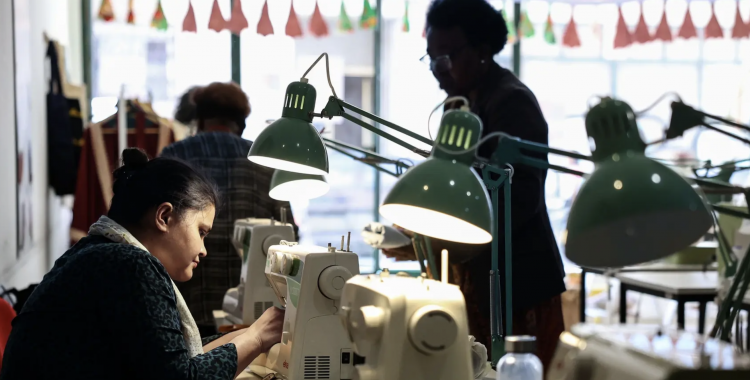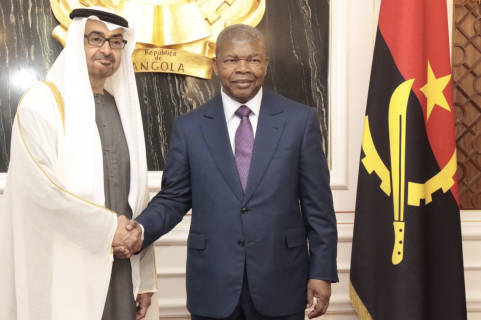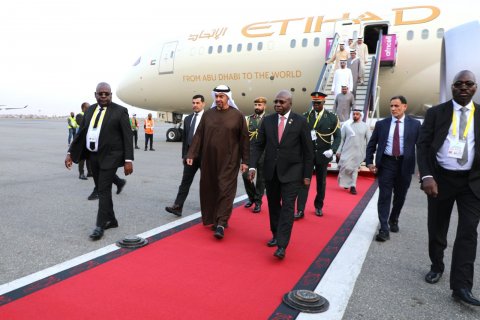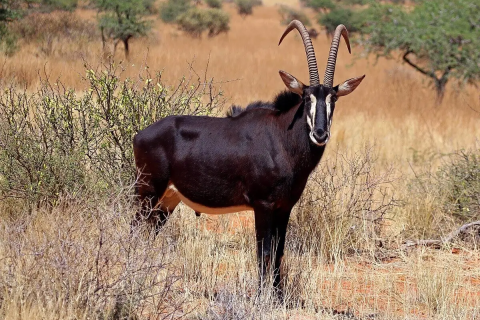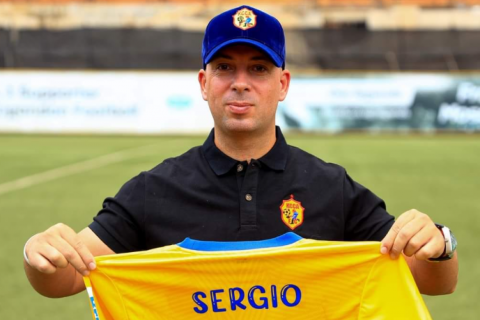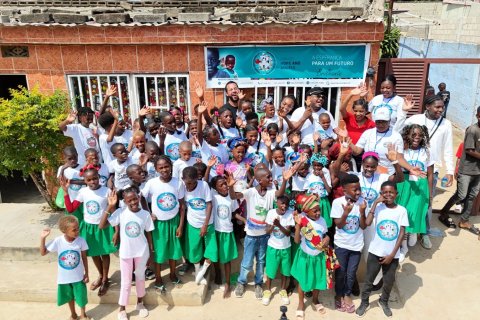Bandim was formalized about two years ago as an independent project and has among its many partners the Aga Khan Foundation, founded by the leader of the Shiite Ismaili Muslims, who died this Tuesday in Lisbon, aged 88.
Maria Helena, 54, arrived from Luanda in 2011, with kidney failure. With some support from the Angolan Government, he settled in a boarding house in Anjos and began hemodialysis treatments, followed by a transplant.
"There's nothing like that in Angola. I'm here because we don't have the right living conditions there. Some people are dying there in Angola," she told Lusa news agency, without leaving her sewing machine where she's working on a piece in the shape of a fish, embroidered in various colors.
Bandim's motto could be color, lots of color. The workshop, which operates in a space provided by the Arroios Parish Council, is decorated with the multitude of pieces that are produced there by the hands of Maria Helena and other migrant women.
The sewing training, totaling around 100 hours each, aims to train women to work on collections developed within the cooperative – which are sold collectively – but also to help them find work as seamstresses elsewhere.
Daughter of a tailor, Maria Helena already did some embroidery at home and made kimonos for her mother. Now that she knows how to "sew well", she intends to start producing to sell.
"It's good to learn how to do these things, it's very good. And there are people here who help, even if we need a document and such," she says. Living in a "very small" room, the Angolan artisan dreams of a house and is excited when she says that she has already sold pieces to Brazil.
It was through the Portuguese Government and the Aga Khan Network that Shahnaz, 33, arrived in Portugal as a refugee from Afghanistan, after passing through Iran, Turkey and Greece.
With a degree in economics, she is now learning to sew with new threads. He worked in a bank and taught English at a private school before leaving Afghanistan for "security reasons".
At Bandim, which she frequents with her sister, who owns a clothing store in Afghanistan, she is dedicated to a new project: "We are making flowers to put on clothes, the plan is to make clothes, for now", she says.
"It hasn't been very easy, we need support and here we are learning," she says, remembering that in Afghanistan he had a "very large" family – as is common in Asia – in which the older ones did everything for the younger ones.
"In Europe it's different. When you're 18, you leave, but it's okay" (laughs). At the end of the conversation she runs to show the work she has already produced, flower applications on bags and simple dresses.
Milene Pereira, vice-president of Bandim, explains that the training has several levels and that at the end, the graduates are able to work as seamstresses elsewhere, if they wish.
Milene arrived from Brazil 20 years ago and, at 50, runs Bandim with Farhana Akter (president), a native of Bangladesh.
It is Farhana, 41, who explains the difficulties faced by the cooperative in meeting the needs of the women who seek it out. "We have 21 nationalities and more than 82 members," she says.
Bandim needs financial and institutional support to be able to support the family situations that come her way, at various levels, although not all women need money: "Some ladies come just to have the company of others, because they are alone."
The space has been sought out by master's students and researchers in the area of migration, which leads the president to consider that the cultural diversity and the sharing of knowledge that intersect there constitute a good source of research.
It is in this sense that he is developing contacts with researchers from the Universidade Nova de Lisboa in the area of Anthropology, with the aim of bringing research and education to Bandim.
"Many people here don't speak Portuguese or English. Some only speak African or Asian languages. Together we create something that is absolutely unique. Sometimes we communicate through gestures," summarizes the former English teacher, who in Portugal takes on the role of intercultural mediator and teaches how to do Bangladeshi embroidery.
The cooperative is also concerned with sustainability, accepts fabric donations and works mainly with scraps. At this point you need "old wool" to stuff the fish into cushions and decorative pieces hanging on the walls.
In addition to the pieces displayed in the workshop window, items are sold in the market, across the street, and in stores that sell original products.
Bandim, with workshops in Lisbon and Sintra, prides itself on welcoming ideas, cultures, arts and crafts from around the world to create "a brand by people for people, under the Portuguese sun".

